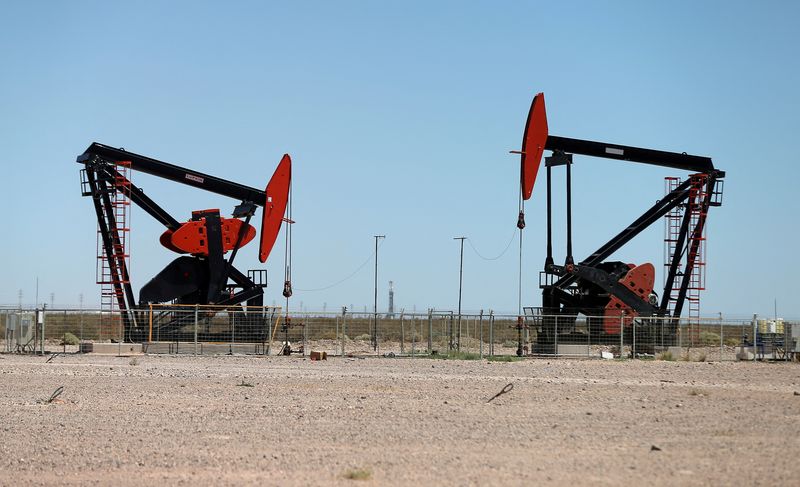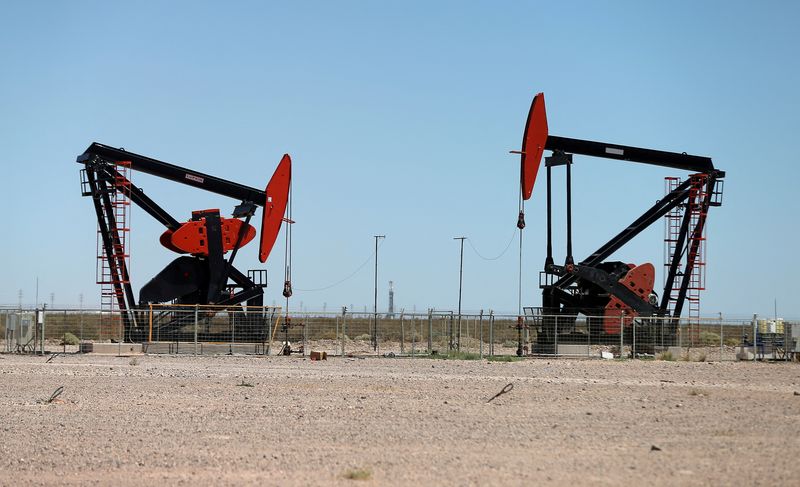
By Gabrielle Ng and Nicole Jao
SINGAPORE (Reuters) – Oil prices were little changed on Friday, but remained on track for strong weekly gains, as investors weighed the prospect of a wider Middle East conflict disrupting crude flows against an amply supplied global market.
Brent crude futures ticked down 8 cents, or 0.1%, to $77.54 a barrel as of 0415 GMT. U.S. West Texas Intermediate crude futures were down 6 cents, or 0.08%, to $73.65 a barrel.
Both benchmarks were headed for weekly gains of about 8%.
Bearish bets on oil have found some room to unwind this week amid mounting concerns over potential supply disruptions in the Middle East, along with optimism that China’s recent economic stimulus efforts may offer some uplift in demand, said IG market strategist Yeap Jun Rong.
“The question now is whether there will be an actual disruption in crude supplies, and that should keep prices in a waiting game over the weekend,” Yeap added.
The U.S. is discussing whether it would support Israeli strikes on Iran’s oil facilities as retaliation for Tehran’s missile attack on Israel, President Joe Biden said on Thursday, while Israel’s military hit Beirut with new airstrikes in its battle against Lebanese armed group Hezbollah.
Biden’s comments contributed to a 5% rally in oil prices on Thursday, as Israel weighs its options after its arch-foe Iran launched its largest-ever assault on Tuesday.
“Supply risks are back in focus as tension in the Middle East rises, but we expect the impact to be limited,” ANZ analysts said in a note.
While the region accounts for more than a third of the world’s oil supply, a direct attack on Iran’s oil facilities seems the least likely response among Israel’s options, the analysts said.
“Such a move would upset its international partners while a disruption to Iran’s oil revenue would likely leave it with little to lose, potentially provoking a more ferocious response.”
Concerns over oil supply that drove up prices earlier in the week have also been tempered by OPEC’s spare production capacity and the fact that global crude supplies have yet to be disrupted by the Middle East unrest.

Libya’s eastern-based government and Tripoli-based National Oil Corp announced on Thursday the reopening of all oilfields and export terminals after a dispute over leadership of the central bank was resolved, ending a crisis that had heavily reduced oil production.
Iran and Libya are both members of OPEC. Iran, which is operating under U.S. sanctions, produced about 4.0 million barrels per day of fuel in 2023, while Libya produced about 1.3 million bpd last year, according to data from the U.S. Energy Information Administration.
This post is originally published on INVESTING.


